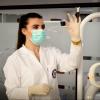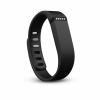medical devices
 |
Using Agile to Navigate through Medical Device Regulations When you test medical device software, you must be very careful. But when development wants to push a cadence of two weeks per sprint, every sprint, you’ve just got to keep up! Interpret the regulatory requirements not as a set of disabling constraints, but as a challenge to find the optimal route to navigate through. |
|
 |
FDA Explores Review Framework for AI-Based Medical Devices As more medical devices are developed that employ artificial intelligence and machine learning software that can learn from real-world feedback and adaptation, the FDA announced it is taking steps to explore a new medical device regulatory framework. The goal is creating safe, beneficial, innovative medical products. |
|
 |
FDA’s New Digital Health Report To update health care providers, patients, and developers about some of the risks and benefits surrounding software products, the FDA released a report based on impact to patient safety, health benefits and risks, and best practices. |
|
 |
FDA Updates Cybersecurity Recommendations for Medical Devices Because of the rapidly evolving nature of cybersecurity threats and risks, the U.S. Food and Drug Administration recently released a draft of updated premarket cybersecurity recommendations on how device manufacturers can better protect their products and proactively address security. |
|
 |
FDA Pilots Program to Pre-Certify Digital Health Software As healthcare undergoes a digital transformation, how can the traditional regulatory process keep pace? The FDA recently announced the initial participants in a pilot program that will pre-certify digital health tech companies that meet quality standards for software design, validation, and maintenance. |
|
 |
FDA Won’t Regulate “Low Risk” Medical Devices It’s expected that a product such as a left ventricular assist device that helps maintain the pumping ability of a heart comes under the scrutiny of the FDA. But should wearables for healthcare that simply record heart rates and sleep cycles be regulated as medical devices? |
|
 |
Heart-to-Heart Security Proposed for Implanted Medical Devices Like any wireless device that can be accessed remotely, implanted medical devices are vulnerable to hacking. The FDA acknowledged that embedded medical devices are a potential target for cyber security breaches and issued a warning to device manufacturers. Pamela Rentz looks at a proposed solution. |
|
 |
Bionic Arm Changes Lives and Offers Glimpse of the Future After losing his lower arm to an accident, a man was invited to try out the most advanced prosthetic in the world. The robotic hand uses custom software configurations to let him perform everyday tasks again. This is just the beginning of what can be done in merging technology with the human body. |



